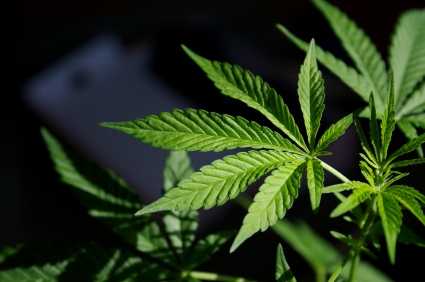And if you are among the 55,000 people with an Oregon medical marijuana card, Portland police say you’ll be able to get your allowed amount of medicine in Washington state. Still, even though you now can’t get busted for toking in Tacoma or elsewhere in Washington (though you could get a ticket for public use), it will be a year before selling or buying it is legal.
As the Evergreen state works out the various complications of its new law – including the fact that marijuana is still illegal under federal law – neighbors of Washington are watching with curiosity, and perhaps some apprehension.
If the federal government doesn’t attempt to intervene in the new law, and if Washington state sets up a supply system whose mechanics are yet to be defined, Washington may well become a greater source of pot for users in Oregon and Idaho.
“It would be like a place people go to get cheap beer. We’re not talking about medical marijuana. We’re talking about people who just want to get high,” said Josh Marquis, district attorney for Oregon’s Clatsop County.
Marquis is not totally opposed to marijuana. He thinks the federal government should do what Oregon has done: decriminalize possession of small amounts, and allow people with genuine medical needs to have access for treatment.
But one of his greatest concerns, echoed by other law enforcement officials, is people going over to Washington to obtain weed and driving home stoned.
“If I’m going to drive on the Oregon coast at night, in the driving rain, I want the person on the other side of the road to be completely unimpaired,” Marquis told The Associated Press.
Idaho law officials are also watching what’s happening in Washington state. Unlike Oregon, Idaho has no medical marijuana law and possession in any form is against the law. Simple possession of less than three ounces is a misdemeanor, punishable by up to a year in jail and a $1,000 fine.
Idaho officials already have their hands full with Idahoans obtaining medical marijuana cards out of state. The Gem State borders three medical marijuana states, a reality that has caused medical marijuana arrests to outpace those of traffickers or other users.
Although Idaho is a largely conservative state, there are pockets defined by borders and demographics that could create new challenges for law enforcement.
One of them is Moscow, home to the University of Idaho campus and more than 11,000 students – just a 10-minute drive to the Washington State University campus in Pullman. More than 70 miles to the north is the busy suburban corridor connecting Spokane, Wash., and the Idaho cities of Post Falls and Coeur d’Alene.
Idaho police say increased arrests for marijuana could intensify stress on county jails and caseloads for county prosecutors.
Idaho State Police Lt. Chris Schenk, says people in north Idaho are joking about so-called “pot tourists” crossing the border to take advantage of Washington’s relaxed law. But he says it’s going to take time to gauge any increases in arrests for possession or driving under the influence.
Oregon has some of the most permissive pot laws in the nation. Possession of less than an ounce will get you the equivalent of a speeding ticket. And for those who want to go the legal route, they can get a medical marijuana card.
Still, obtaining pot in Oregon is not without its hassles, in the eyes of some who use it.
Federal drug agents have been cracking down on some medical marijuana pot growers, alleging they shipped pot out of state. There has also been pressure on dispensaries that have sprung up in Oregon that provide medical marijuana for a fee to cover costs of operation. Law officials in some counties have raided such operations, saying they are selling pot for profit.
If Washington state sets up a pot supply system, it is likely some Oregon holders of medical marijuana cards will go north for their medicine, advocates say.
In Canada, another Washington neighbor, pot is illegal under federal law. Border enforcement of drug laws is stringent, but enforcement for possession for personal use is relaxed. Grass is smoked openly in parks and at pot cafes in British Columbia. Distribution of medical marijuana to patients with needs deemed legitimate through pot dispensaries is also allowed
A spokesman for the Royal Canadian Mounted Police, Sgt. Duncan Pound, said it is too early to predict what effects legalization in Washington will have.
A marijuana advocate in British Columbia, Jodie Emery, worries Canada might intensify border controls because of Washington’s weed legalization.
Emery also speculates that legalization in Washington could lessen the flow of people traveling to Vancouver, British Columbia to try some “BC Bud.”
“British Columbia does have a lot of tourism for people who want to experience the marijuana culture but that is shifting,” Emery said.
Back in Oregon, the tip sheet to marijuana users issued by Portland police states that possession of less than an ounce has been a “low law enforcement priority for 35 years in Portland and this will not change due to the new Washington law.”
But the advisory also has this caution: If you go to Washington to “buy some weed,” the “Portland Police Bureau cannot predict or control the enforcement activities of federal authorities.”



Leave A Comment